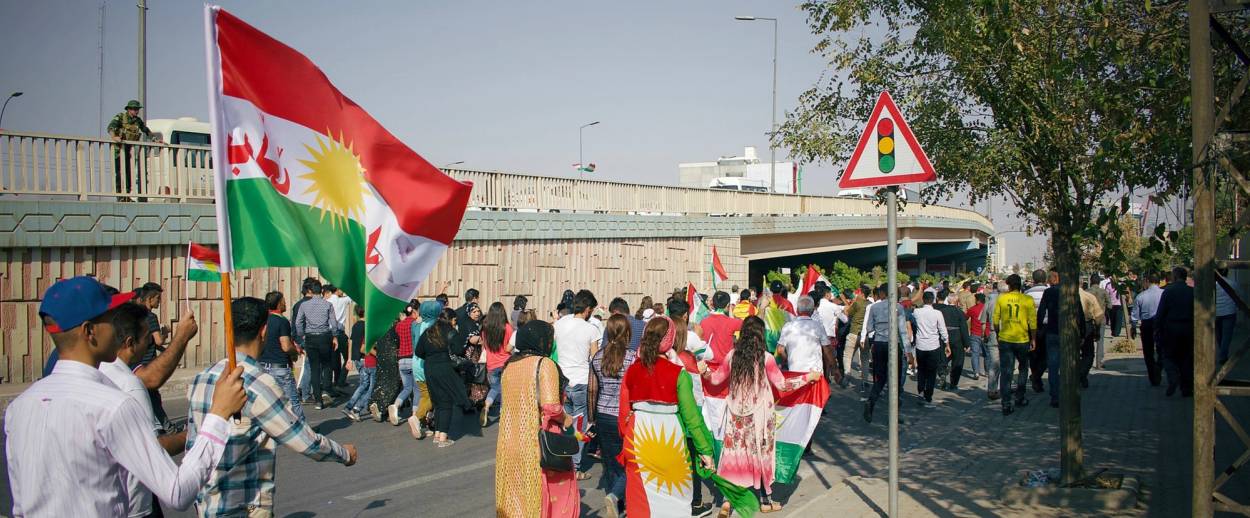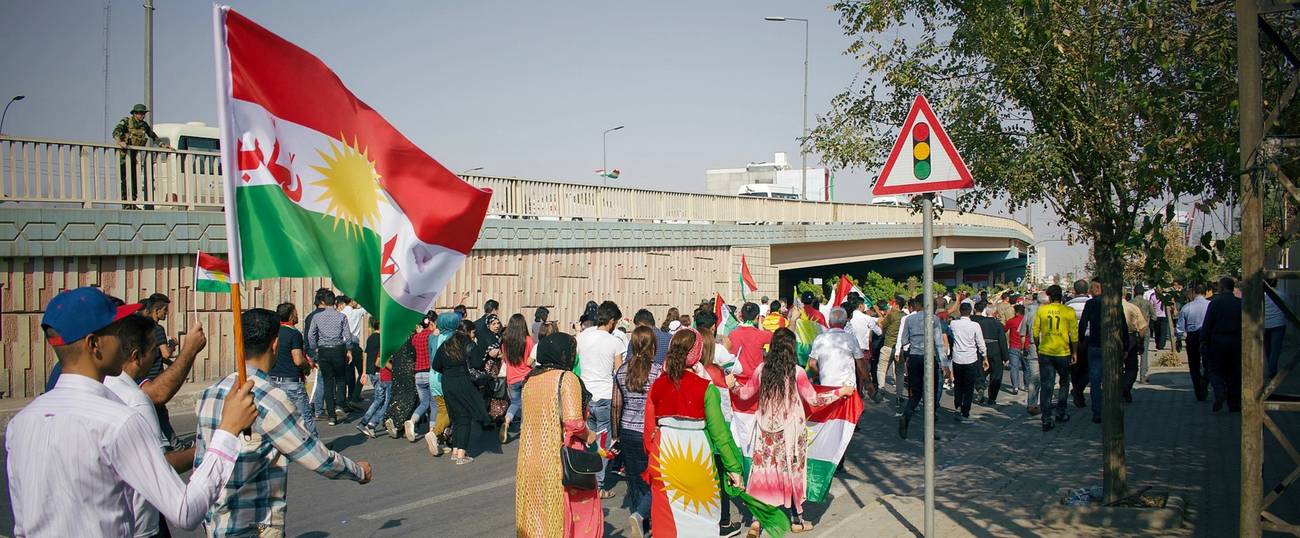Honoring ‘Mr. Kurd’
One year after some 100,000 Kurds were driven out of Kirkuk, should they have placed their hopes in Trump?




The moment in question, was the president’s manner of addressing Majeed Gly and Rahim Rashidi, two young journalists from Kurdistan, at a press conference during U.N. General Assembly week in New York. Mr. Rashidi raised his hand to inquire about U.S.-Kurdish relations and President Trump’s plan to hinder Iranian influence in the region. The president invited his question with these words: “Yes, please, Mr. Kurd. Go ahead.” Indelicate, most would agree. And thus, began the debate. …
The usual scenario ensued: Social networks erupted immediately, heavy chatter followed, tweeters and real folk denounced the vulgarity of the gesture. When I asked those around me (to be sure, in my New York liberal circles), most were appalled. The inelegance, lack of sensitivity, and penchant to reduce journalists without the slightest regard for the question posed, was all too familiar. Yet, astonishingly and to general surprise, Mr. Kurd was ecstatic. And, so were many Kurds–from Washington all the way back to Erbil.
In this gesture, so typically and profoundly maladroit, the president of the United States had acknowledged the existence of a group that has been marginalized and oppressed far too long. There are some 35 million Kurds spread across Iraq, Turkey, Syria, and Iran, who have been striving for statehood for the past 100 years and yet remain disenfranchised. Within this noble people are so many who practice and have advanced an enlightened Islam where differences are not simply tolerated but celebrated. There are the valiant peshmerga, soldiers who committed soul, flesh, and blood to act as the barricade against the brutality of ISIS. In short, these brave women and men are the best comrades in values and strongest allies on the battlefield the Western world could ever ask for.
To this last point, according to many Kurds, President Trump attempted to go to the heart of the matter. He came out with the following … “We have to help them. I want to help them. They fought with us. They died with us. They died. We lost tens of thousands of Kurds, died fighting ISIS. They died for us and with us. And for themselves. They died for themselves. They’re great people. And we have not forgotten. We don’t forget.”
Though many expected him to take offense, “Mr. Kurd” was lifted by the scene. In just two minutes, the President acknowledged him and by extension, the Kurdish people. And a platform was created to speak out about their struggles. For me, and my liberal friends in New York, this “Mr. Kurd” was careless and crude. But for those at the heart of the matter, it was a dose of hope for the future.
Now, the real question is: Will President Trump be true to his word, and America to its commitment? Today marks the 1-year anniversary of the beginning of the Battle of Kirkuk. In mid-October 2017, Iraqi forces and Iranian-led Shia militia butchered and bulldozed Kirkuk with the help of U.S. Abrams tanks. The violence was devastating and in the initial fighting, over 100,000 Kurds were displaced. In the West, the memory of what happened a year ago remains a blight on those who “forgot” the Kurdish people’s contributions to our shared values and common cause.
One year has passed. Has the situation changed? Has the time of reparations arrived? I sincerely hope so. But, alas, I have my doubts …
Emily Hamilton is the executive director of Justice for Kurds.
Emily Hamilton (Katz) was the Director of Development and Communications at the Cultural Services of the French Embassy in the United States from 2011 to 2016.